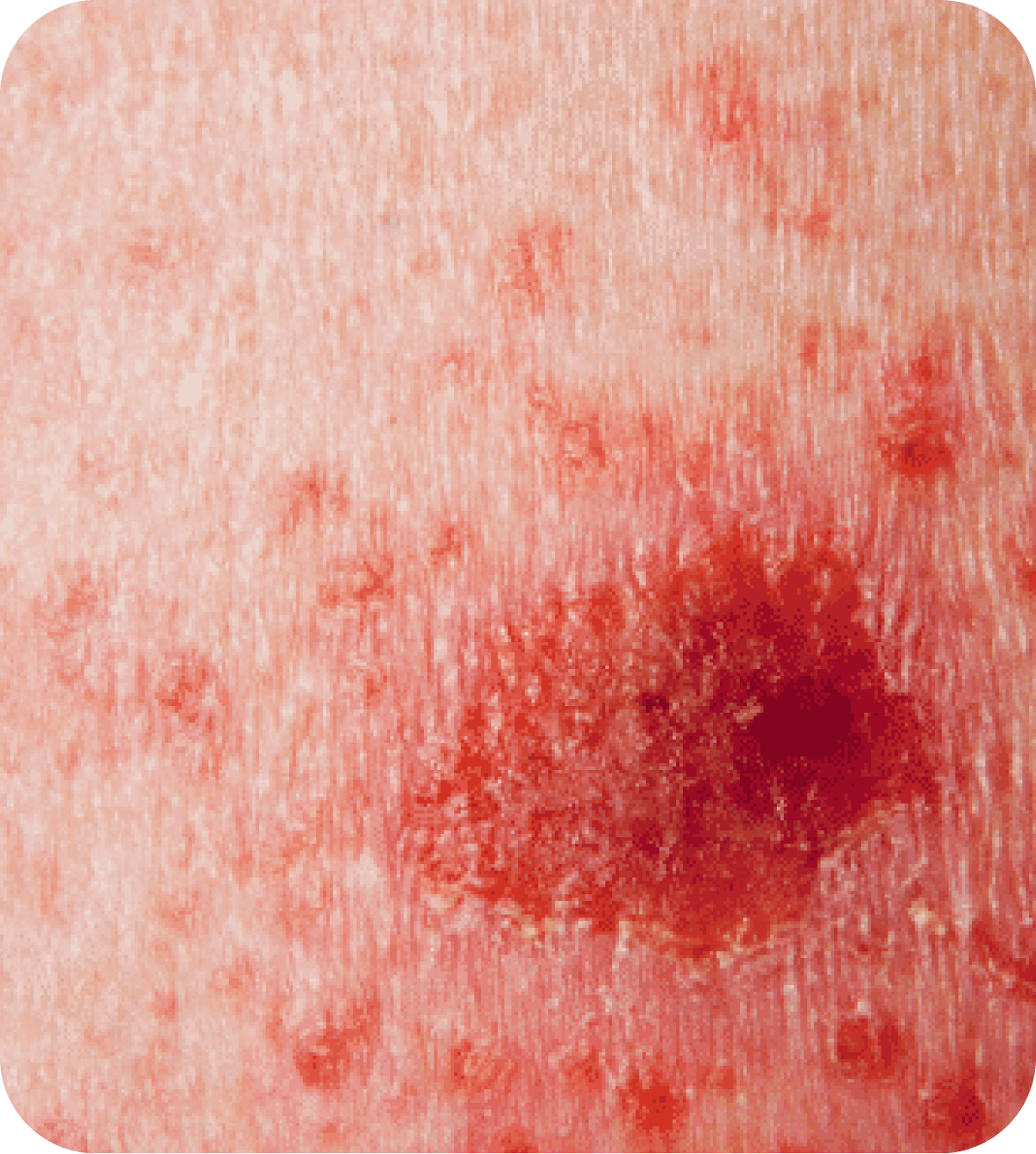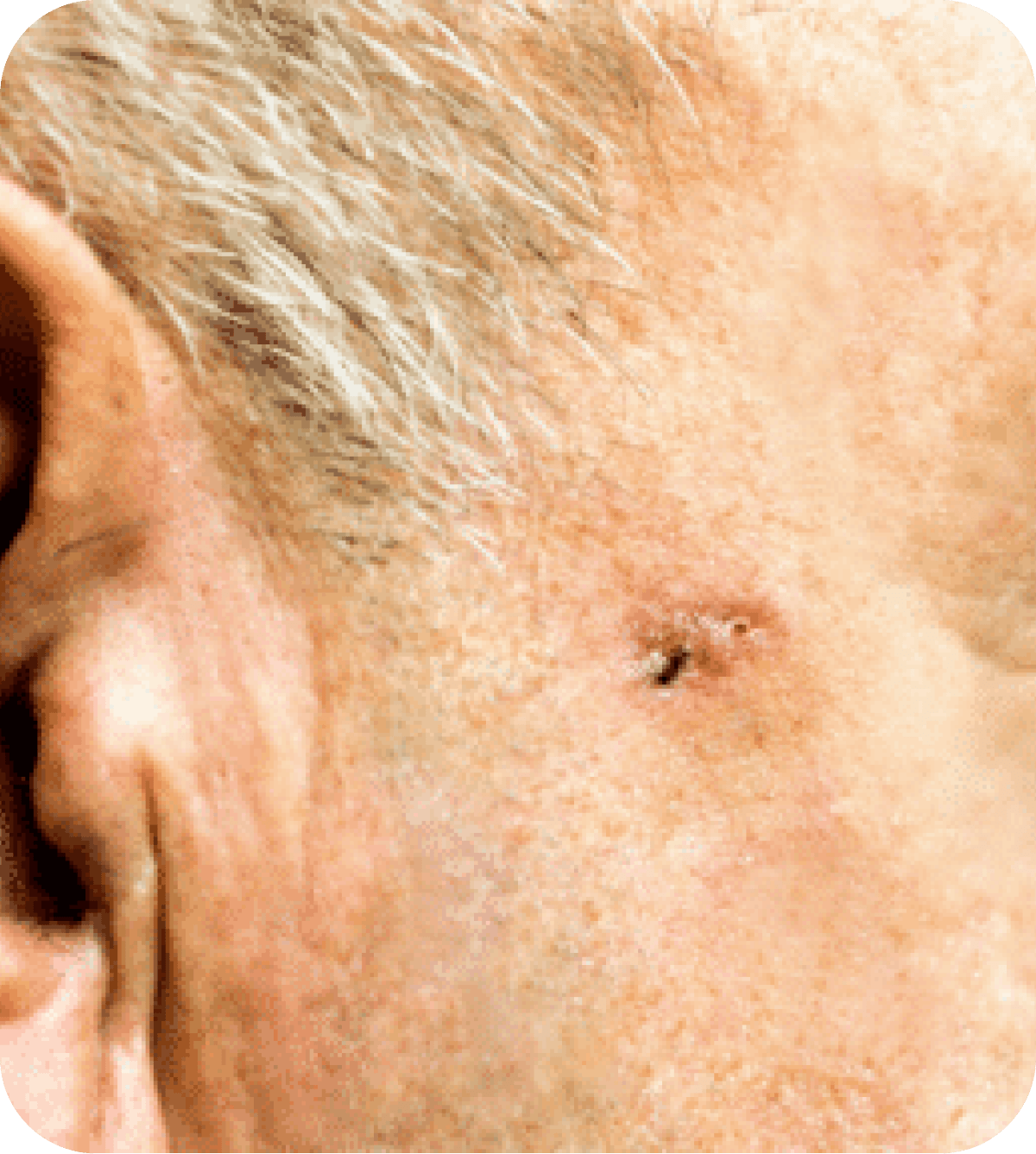
Overview
Basal Cell Carcinoma is the most common form of skin cancer, with the United States contributing over four million cases a year. Basal cell carcinoma occurs from abnormal and uncontrolled basal cell growth. Fortunately, basal cell carcinoma is a slow-growing cancer, which is usually curable when diagnosed and treated early. If you are concerned that you may have basal cell carcinoma, you must seek medical attention right away. If you are looking for a top-rated dermatology and skin cancer center in South Carolina, please contact Waccamaw Dermatology.
FAQ
Symptoms
Basal cell carcinoma most commonly develops in locations on the body exposed to the sun; however, it can also develop in sun-hidden locations. Basal cell carcinoma presents itself as a change in the skin that has one of the following attributes:
- A brown, blue, or black lesion (the lesion can also have dark spots with a raised, translucent border)
- A pearly white, pink, or skin-colored bump with a translucent cover (you should be able to see inside the surface a bit)
- A flat, scaly, red patch with a raised edge
- A white, waxy, or scar-like lesion (without a defined border)
On occasion, these spots can ooze, crust, bleed, or itch. For an in-depth explanation of basal cell carcinoma warning sides, please carefully review the guide provided by the Skin Cancer Foundation.
Unfortunately, basal cell carcinoma is hard to spot without a medical professional’s help. It can appear differently on each individual and often looks like other skin conditions, such as psoriasis and eczema. To determine if you have basal cell carcinoma, it is imperative that you seek a doctor for an examination. Waccamaw Dermatology is the top dermatology and skin cancer center of South Carolina, so please give us a call today to schedule an appointment.
Causes
Basal cells are the cells responsible for the production of new skin cells. They are located in the outermost layer of skin, the epidermis level. Basal cell carcinoma occurs when one of your basal cells develops a mutation in its DNA, which causes the cells to multiply rapidly and form a cancerous tumor. While the exact cause of this sudden mutation has not yet been determined, certain factors can put an individual at a higher risk, including:
- Excessive sun exposure
- Indoor tanning
- History of skin injuries
- Radiation therapy
- Compromised immune system
- Aging
- Fair skin
- Personal or family history of skin cancer
Treatments
After a skin examination, if you have been diagnosed with basal cell carcinoma, various treatments are available depending on your specific needs. Options include surgical excision, Mohs surgery, curettage & electrodessication, Superficial Radiation Therapy, freezing, or topical treatments. At Waccamaw Dermatology, we strive to provide the highest quality service as a dermatology and skin cancer center of South Carolina. We will work together to find the right treatment plan and get you on the path to happy, healthy skin.

“Easy in, easy exam, fast service. A well run courteous office spear headed by an incredible doctor.”

